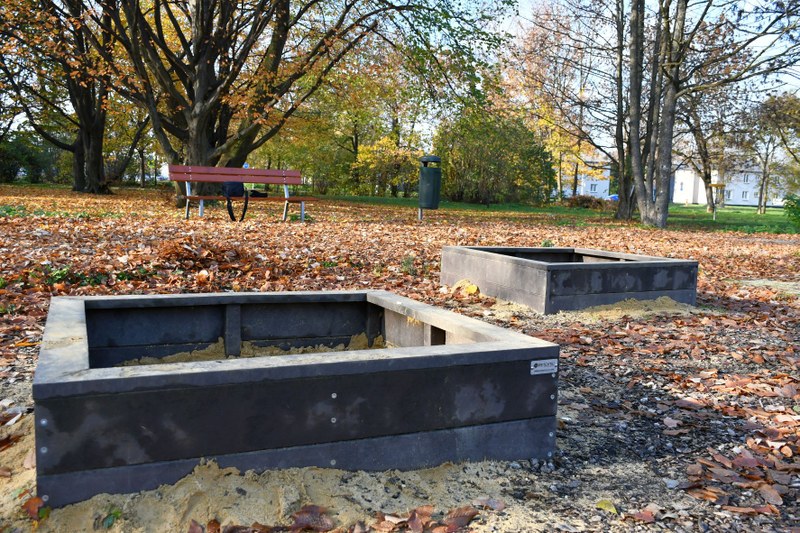
TEXTILE COLLECTION IN OSTRAVA CONTRIBUTES TO A SUSTAINABLE LIFESTYLE
Ostrava is continuously working on enhancing its entire waste management system. The city has established a network of public collection points for sorted waste (paper, glass, and plastic, including beverage cartons and metal packaging).

According to legislation, textile collection will be mandatory starting January 2025. However, the city has been actively collecting textiles for over ten years now. The first containers for used textiles were placed in Ostrava in 2013, and since then, more than 120 containers have been installed, with more set to follow. In addition to these containers, citizens can donate textiles and clothing they no longer use at collection yards and to charitable organizations. Discarded textiles can also be repurposed in various ways.
“Textile collection is a vital part of our residents' responsible approach to the environment and the textile waste cycle. The amount of collected textiles continues to grow, with citizens donating around 500 tons each year over the past three years. The same quantity is also handed over to charitable organizations or collected during volunteer drives. In Ostrava, we have experience in textile collection, and by passing it on for further use, we reduce the amount of municipal waste sent to landfills, which has a clear environmental impact, plus we save money by lowering our waste disposal costs,” explains Aleš Boháč, Deputy Mayor for the Environment.
The textiles collected in the city are utilized by charitable organizations, while textiles that cannot be used as clothing are repurposed, for example, into building boards in construction that serve as insulation layers or substitutes for drywall. They are also used as raw materials for producing sound and insulation fillings in the automotive industry or for manufacturing cleaning textiles, non-woven materials, heavy-duty mats, and other products. Additionally, textiles are used to create urban furniture, specifically boards and profiles used in benches, sandpits, litter bin covers, screens, or garden furniture.
A prime example of good practice in Ostrava with recycled urban furniture is the Ostrava-Mariánské Hory and Hulváky district. This responsible approach to acquiring furniture was initiated by Mayor Patrik Hujdus: “I consider the use of recycled textiles, originally waste materials, to be meaningful as it contributes to reducing our carbon footprint. Another bonus is the low maintenance of this furniture. We have acquired two sandpits for a playground and 12 benches placed in the housing estates and near public transport stops. Of course, we didn’t forget about the litter bin, all made from recycled textiles.”
The mayor of the city, Jan Dohnal, welcomes the responsible approach to handling discarded textiles: “The clothing collection has been organized by city hall employees since 2014. The discarded textiles initially go to charitable organizations, but it also supports clients of the social affairs department who find themselves in difficult life situations. Collected textiles represent about one percent of all sorted waste. Additional textiles still end up in mixed municipal waste; however, Ostrava has one of the most modern sorting lines, and thus the share of utilized textiles will grow. We also plan to increase the number of containers for discarded clothing. The greatest influence on sorting, however, comes from environmental education of the younger generation,” he adds, noting, “For the past 20 years, the waste collection company Centrum odpadové výchovy has been running educational programs primarily for elementary and secondary school students, as well as for other interested parties. The programs are tailored to all grades of elementary school, allowing the center to be visited multiple times throughout the school year. Each year, up to 8,000 people go through this center.”
Since 2016, residents of the city have also had access to containers for biological waste at family houses, and in 2022, containers for used edible oil and fats were added. The waste collection company operates a network of collection yards evenly distributed throughout the city. This year, the pilot project “single stream” was also expanded, see more HERE.
The city, together with the waste collection company, organizes many educational events for its citizens, such as regular open days at the waste collection company, participation in and support for Earth Day, and other awareness campaigns by environmental organizations. The distribution of sorting bags for paper, plastic, and glass to every household in Ostrava met with great success, which led to increased interest in sorting. After the distribution of bags, citizens can pick up new sets at the city hall.
